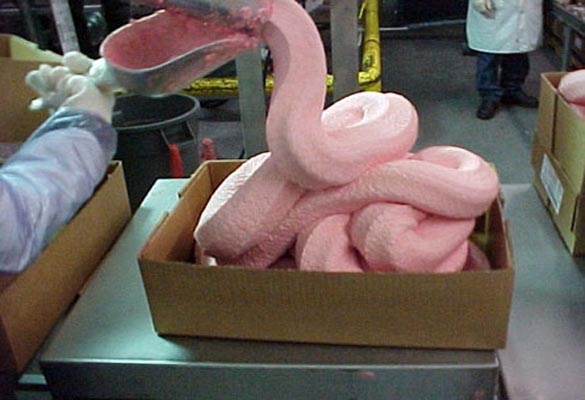Locals Hire PR Firm in Chicken Plant Flap
Submitted by Anne Landman on
 Citizens of Nash County, North Carolina have hired the Raleigh-based public relations firm Campaign Connections to help stop Sanderson Farms from building a chicken processing plant in their community. Citizens call the slaughtering plant an "industry of yesterday" and say locating the plant in Nash County will make it harder to lure higher-tech businesses to the area, like biotech, pharmaceutical and alternative energy companies. Campaign Connections says citizens sought their help to correct misinformation, like the notion that they oppose bringing jobs to the area. Citizens say they aren't opposed to jobs, or to Sanderson Farms, but feel the company is not a "good match" for their community. As part of a strategy to oppose the plant, some Nash County citizens have bought stock in Sanderson Farms so they can be included in the company's Board of Directors meetings.
Citizens of Nash County, North Carolina have hired the Raleigh-based public relations firm Campaign Connections to help stop Sanderson Farms from building a chicken processing plant in their community. Citizens call the slaughtering plant an "industry of yesterday" and say locating the plant in Nash County will make it harder to lure higher-tech businesses to the area, like biotech, pharmaceutical and alternative energy companies. Campaign Connections says citizens sought their help to correct misinformation, like the notion that they oppose bringing jobs to the area. Citizens say they aren't opposed to jobs, or to Sanderson Farms, but feel the company is not a "good match" for their community. As part of a strategy to oppose the plant, some Nash County citizens have bought stock in Sanderson Farms so they can be included in the company's Board of Directors meetings.

 In the
In the  First, a weird photo of
First, a weird photo of  The Center for Media and Democracy's Senior Fellow on Health Care,
The Center for Media and Democracy's Senior Fellow on Health Care, 
 Journalists working for Utah's oldest continuously-published daily newspaper, the Deseret News, are leaving the paper in a dispute over the new direction in the paper's journalism.
Journalists working for Utah's oldest continuously-published daily newspaper, the Deseret News, are leaving the paper in a dispute over the new direction in the paper's journalism.